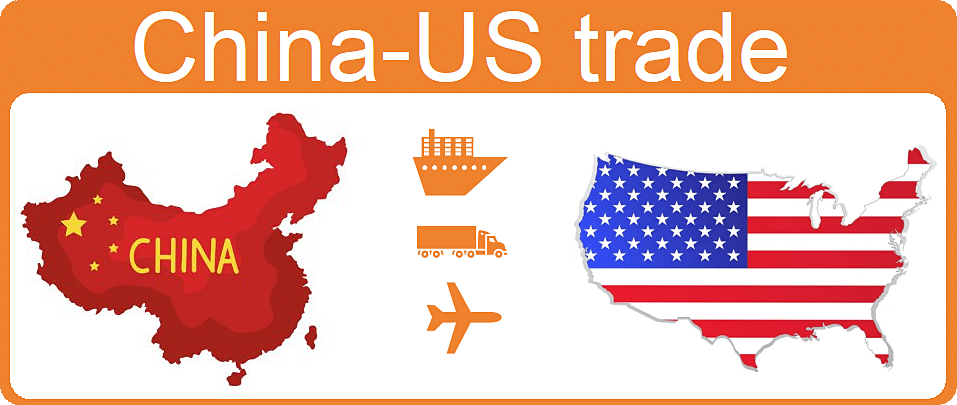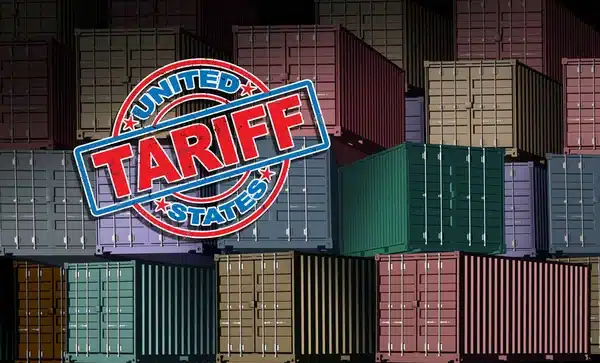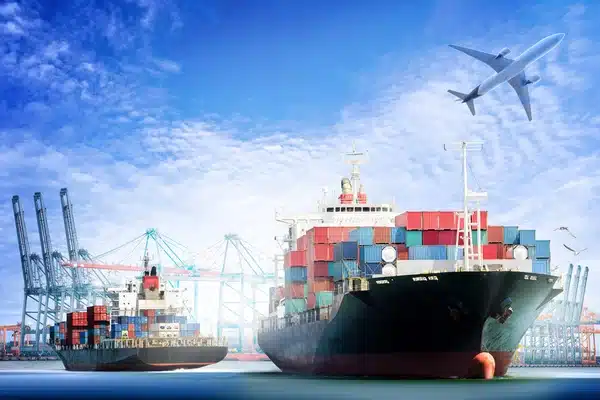When importing goods from China to the USA, estimating duties and taxes accurately is essential for budgeting and avoiding unexpected costs. Understanding customs duties, tariffs, and additional fees ensures smooth customs clearance and helps businesses stay compliant with U.S. import regulations.
This guide provides a step-by-step approach to calculating import duties, understanding tax policies, and reducing shipping costs for different types of shipments from China to the USA. Whether you’re shipping electronics, machinery, textiles, or consumer goods, this article will help you navigate U.S. customs efficiently.

Table of Contents
Understanding Import Duties and Taxes in the USA
When importing goods from China to the USA, businesses and individuals must account for import duties, taxes, and other fees levied by U.S. Customs and Border Protection (CBP). These costs depend on the type of goods, their declared value, and their Harmonized Tariff Schedule (HTS) classification. Understanding these charges helps importers avoid unexpected costs and ensures smooth customs clearance.
What Are Import Duties?
Import duties (also known as customs duties or tariffs) are fees imposed by the U.S. government on goods entering the country. These fees serve two main purposes:
- Revenue Generation – Import duties contribute to the U.S. economy.
- Trade Protection – Tariffs help protect domestic industries by discouraging excessive imports of foreign goods.
How Are Import Duties Determined?
- Harmonized Tariff Schedule (HTS): Each product is classified under a specific HTS code that determines its duty rate.
- Customs Value: Duties are calculated based on the CIF Value (Cost + Insurance + Freight) of imported goods.
- Trade Agreements: Some countries benefit from free trade agreements (FTAs) that reduce or eliminate tariffs on certain products.
Example of Import Duties for Popular Products:
| Product | HTS Code | Duty Rate |
|---|---|---|
| Bluetooth Speakers | 8518.21.00 | 0% |
| LED Lights | 9405.40.84 | 3.9% |
| Furniture | 9403.60.80 | 1%–5.3% |
| Clothing (Cotton T-Shirts) | 6109.10.00 | 16.5% |
| Bicycles | 8712.00.25 | 11% |
Do All Imports Have Duties?
Not all goods imported into the U.S. are subject to import duties.
Duty-Free Imports:
- Goods valued under $800 (De Minimis Exemption – Section 321)
- Certain electronics, books, and medical devices
- Products from FTA countries (Mexico, Canada, etc.), if they meet the rules of origin
Dutiable Imports:
- Most clothing, textiles, and footwear
- Automobiles and motorcycles
- Luxury goods and high-value electronics
Understanding the De Minimis Rule ($800 Rule)
- Shipments valued below $800 are exempt from import duties and taxes under the De Minimis provision (Section 321).
- This applies per shipment, so splitting orders into smaller shipments can reduce duty costs.
- Example: If you import $700 worth of goods in two separate shipments, you pay no duty. If you import $1,500 in one shipment, you pay duties on the excess amount over $800.
What Taxes Apply to Imports?
The U.S. does not charge VAT (Value-Added Tax) or GST (Goods and Services Tax) like many other countries. However, there are other taxes that may apply:
Types of Taxes on Imports to the U.S.:
| Tax Type | Description | Rate |
|---|---|---|
| Merchandise Processing Fee (MPF) | Charged on most imports, based on value | 0.3464% (Min: $31.67, Max: $614.35) |
| Harbor Maintenance Fee (HMF) | Applied to sea freight shipments entering U.S. ports | 0.125% |
| Excise Tax | Applies to specific goods like alcohol, tobacco, and fuel | Varies |
Excise Taxes on Restricted Goods:
- Alcohol: Wine, spirits, and beer face federal excise taxes.
- Tobacco: Cigarettes and vaping products are heavily taxed.
- Luxury Vehicles: High-end automobiles and motorcycles may have additional fees.

How to Calculate Import Duties from China to the USA
When importing goods into the USA, customs duties are calculated based on the classification of the product, its declared value, and applicable trade policies. Here’s a step-by-step guide to estimating import duties for your shipment.
Identify the HS Code of Your Product
The Harmonized System (HS) Code is a globally recognized classification system used to determine the correct duty rates for different products. In the USA, this system is known as the Harmonized Tariff Schedule of the United States (HTSUS).
- You can find your product’s HS Code using the U.S. HTS Search Tool .
- The HS Code is essential for calculating the correct duty rate.
Examples of HS Codes for Common Products:
| Product | HS Code | Duty Rate |
|---|---|---|
| Bluetooth Speakers | 8518.21.00 | 4.9% |
| LED Lights | 9405.40.84 | 3.9% |
| Electric Scooters | 8711.60.00 | 0% |
| Furniture | 9403.60.80 | 1%–5.3% |
| Clothing (Cotton T-Shirts) | 6109.10.00 | 16.5% |
Check the Duty Rate
Each product has a different duty rate, which is set by U.S. Customs and Border Protection (CBP) based on its classification.
- Some products have zero duty, while others can have tariffs as high as 25% or more.
- Additional tariffs (such as Section 301 tariffs on Chinese goods) may apply to certain items.
You can check the duty rate for your product using the HTSUS Lookup Tool .
Calculate the Customs Duty
Once you have identified the HS Code and duty rate, use the Customs Duty Formula:
Customs Duty = CIF Value × Duty Rate
Where:
- CIF Value = Cost of Goods + Insurance + Freight
- Duty Rate = Percentage assigned based on the HS Code
Example Calculation:
| Item | Bluetooth Speakers |
|---|---|
| HS Code | 8518.21.00 |
| CIF Value (Cost + Freight + Insurance) | $5,000 (Goods: $4,500 + Freight: $400 + Insurance: $100) |
| Duty Rate | 4.9% |
| Customs Duty | $5,000 × 4.9% = $245 |
Total Duties Payable: $245 USD
Special Considerations
- De Minimis Rule ($800 Rule):
- Shipments valued under $800 USD are duty-free under Section 321.
- Example: A shipment worth $750 incurs zero customs duty.
- Additional Tariffs:
- Section 301 tariffs apply to some Chinese goods, adding up to 25% extra duty.
- FTA (Free Trade Agreements):
- Products from Mexico, Canada, or other FTA partners may qualify for duty-free entry.
Additional Import Fees and Charges
When importing goods into the USA, in addition to standard customs duties, you may encounter additional fees such as processing fees, maintenance fees, and special tariffs. Below are the key additional charges to consider:
Merchandise Processing Fee (MPF)
The MPF is a U.S. Customs and Border Protection (CBP) fee applied to all imports, regardless of origin.
- For shipments valued over $2,500 USD:
- 0.3464% of the CIF value (Cost + Insurance + Freight).
- Minimum charge: $29.66
- Maximum charge: $575.35
- For shipments valued under $2,500 USD:
- Flat fee between $2 to $9 USD
Example Calculation:
| CIF Value of Shipment | MPF Fee Calculation | Final MPF Fee |
|---|---|---|
| $5,000 | $5,000 × 0.3464% | $29.66 (Minimum) |
| $50,000 | $50,000 × 0.3464% | $173.20 |
| $200,000 | $200,000 × 0.3464% | $575.35 (Maximum) |
Harbor Maintenance Fee (HMF)
The HMF is charged on ocean freight imports arriving at U.S. ports. This fee helps fund the maintenance of U.S. harbors and ports.
- Rate: 0.125% of the CIF value
- Applies only to ocean freight shipments (FCL/LCL).
- Does NOT apply to air freight or express shipping.
Example Calculation:
| CIF Value of Shipment | HMF Fee Calculation | Final HMF Fee |
|---|---|---|
| $10,000 | $10,000 × 0.125% | $12.50 |
| $100,000 | $100,000 × 0.125% | $125.00 |
| $500,000 | $500,000 × 0.125% | $625.00 |
Section 301 Tariffs (China Trade Tariffs)
Under Section 301 of the U.S. Trade Act, certain Chinese imports are subject to extra tariffs, ranging from 7.5% to 25%.
- These tariffs apply on top of standard import duties.
- The U.S. Trade Representative (USTR) maintains an updated tariff list of affected goods.
- Check if your HS Code is affected on the USTR official website.
Example of Section 301 Tariffs on Chinese Imports:
| Product | HS Code | Standard Duty Rate | Additional Section 301 Tariff | Total Duty Payable |
|---|---|---|---|---|
| Bluetooth Speakers | 8518.21.00 | 4.9% | 25% | 29.9% |
| LED Lights | 9405.40.84 | 3.9% | 25% | 28.9% |
| Electric Scooters | 8711.60.00 | 0% | 25% | 25% |
| Furniture | 9403.60.80 | 1%–5.3% | 25% | 26%–30.3% |
Example Calculation:
If you import Bluetooth speakers (HS Code: 8518.21.00) from China, with a CIF Value of $10,000:
- Standard Duty: $10,000 × 4.9% = $490
- Section 301 Tariff: $10,000 × 25% = $2,500
- Total Import Duty Payable: $2,990
Summary of Import Fees
| Fee Type | Applicable Shipments | Rate | Example Charge (Based on $10,000 CIF) |
|---|---|---|---|
| Customs Duty | All imports | Varies by HS Code | $490 (Bluetooth Speakers) |
| Merchandise Processing Fee (MPF) | All imports | 0.3464% ($29.66–$575.35) | $29.66 |
| Harbor Maintenance Fee (HMF) | Ocean freight only | 0.125% | $12.50 |
| Section 301 Tariffs | Chinese imports | Up to 25% | $2,500 |
Example: Full Import Cost Breakdown
Scenario: Shipping Bluetooth Speakers from China to the USA
| Cost Component | Amount (USD) |
|---|---|
| Cost of Goods | $4,500 |
| Freight (Air) | $400 |
| Insurance | $100 |
| CIF Value | $5,000 |
| Customs Duty (4.9%) | $245 |
| Merchandise Processing Fee (MPF) | $29.66 |
| Harbor Maintenance Fee (HMF) | N/A (Only for sea freight) |
| Total Import Costs | $5,274.66 |

Tips for Reducing Duties and Taxes When Shipping from China to the USA
Use the Correct HS Code
- The Harmonized System (HS) Code determines your import duty rate.
- Some variations of a product may qualify for lower duty rates.
- Example:
- Bluetooth Speakers (HS Code: 8518.21.00) → 4.9% duty
- Other Audio Equipment (HS Code: 8518.29.00) → 0% duty
Optimize Shipping Methods
- Air vs. Sea Freight impacts CIF Value (Cost + Insurance + Freight), affecting customs duties.
- Sea Freight (FCL or LCL) can reduce unit costs for bulk shipments.
- Consolidate shipments to lower customs clearance fees.
Work With a Customs Broker
- Helps avoid misclassification of products, which could lead to higher duty rates.
- Ensures accurate paperwork, reducing the risk of customs holds.
- Brokers can apply for duty refunds or exemptions when applicable.
Use DDP (Delivered Duty Paid) Shipping
- What is DDP Shipping?
- Your supplier or freight forwarder handles all customs duties, taxes, and clearance fees.
- Ensures smooth delivery with no unexpected costs for the importer.
- Why Choose DDP?
- Reduces administrative work for the buyer.
- Avoids unexpected penalties or additional fees.
Check for Trade Agreements & Duty Exemptions
- Some products qualify for duty-free entry under trade agreements or special exemptions.
- Examples:
- The U.S. Generalized System of Preferences (GSP) may reduce tariffs on select products.
- Electronic components, raw materials, or industrial goods may qualify for lower or zero tariffs.
- Action Steps:
- Verify your product’s HS Code on the U.S. Harmonized Tariff Schedule (HTSUS).
- Work with an import specialist to see if duty exemptions apply.
You might find these related articles on shipping from China to the USA useful. Check out the following recommended posts:
20FT & 40FT Container Shipping Rates from China to USA
Does REDnote (Xiaohongshu) Offer Shipping to the USA?
Sea Freight Shipping from China to the USA: A Complete Guide
Door to Door Shipping from China to USA: A Comprehensive Guide
Why Choose Tonlexing for Customs Clearance?
Expert Guidance on Duty Calculation
- Accurate HS Code Classification: Avoid costly misclassification errors.
- Real-Time Tariff Rate Checks: Stay updated on the latest duty rates for your products.
- Customs Compliance Support: Ensure your shipment meets U.S. import regulations.
Seamless Customs Clearance
- DDP (Delivered Duty Paid) Shipping: Tonlexing handles all customs duties, taxes, and import fees, ensuring a hassle-free shipping process.
- Minimized Delays: Avoid customs holds by ensuring correct documentation and compliance.
- End-to-End Logistics Support
Importing goods from China to the USA involves various customs duties, taxes, and clearance procedures. By understanding the costs associated with shipping, customs duties, and additional fees, businesses can optimize their logistics and reduce unnecessary expenses.
Choosing the right shipping method, accurately classifying goods with the correct HS code, and working with a trusted freight forwarder can help streamline the process and avoid unexpected charges.
Tonlexing provides expert customs clearance services, DDP shipping solutions, and transparent pricing to ensure a smooth import experience. Whether you are shipping electronics, machinery, textiles, or consumer goods, we help you navigate customs regulations and reduce shipping costs.
📞 Contact Tonlexing today to simplify your shipping process and ensure your goods arrive hassle-free! 🚢✈️


